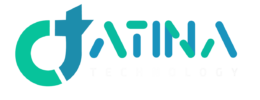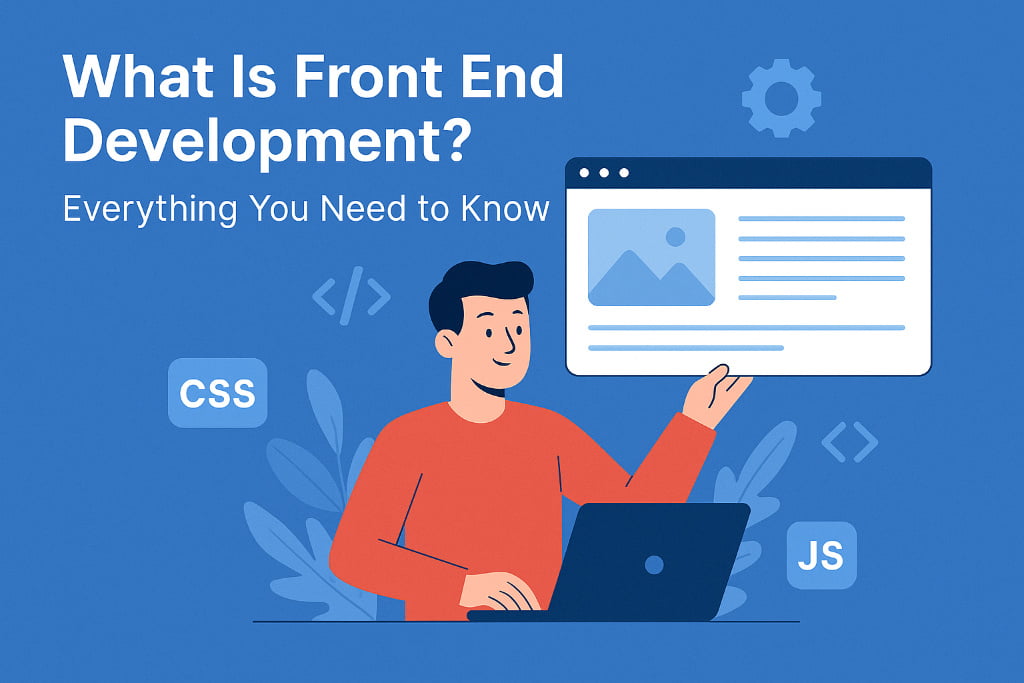Ever visited a website and thought, “Wow, this looks amazing!”?
Chances are, you’ve just experienced the magic of Front End Development — the art of making websites not just work, but look and feel incredible.
In this blog, we’re diving deep into the world of front end development — but not in a boring way. We’ll break it down into bite-sized points so you walk away with crystal-clear clarity and maybe even a new career goal!
1. So, What Exactly Is Front End Development?
Think of the front end as everything you see and interact with on a website.
From clicking a button to scrolling through a page, front end developers create the visual layer of websites using HTML, CSS, and JavaScript. They’re the magicians behind the user interface (UI) — making sure things are not just functional but visually appealing.
In simple terms: If websites were restaurants, front end developers would design the menu, the table setup, and the way food is presented.
2. What Do Front End Developers Actually Do? (It’s More Than Just Pretty Buttons!)
Front end developers wear multiple hats. Here’s what they juggle on a regular day:
- Structure the content using HTML
- Style the website with CSS (colors, layouts, fonts, animations)
- Add interactivity with JavaScript (dropdowns, sliders, pop-ups)
- Optimize for speed so the site loads in a flash
- Make it responsive for mobile, tablet, and desktop views
- Ensure accessibility so everyone can use the site (including users with disabilities)
It’s a mix of creativity and logic — the perfect blend of art and code.
3. Why Should You Even Care About Front End Development?
Great question! Whether you’re a business owner, a designer, or a student thinking about career options, Front End Development impacts your digital life in many ways:
- Career Opportunities : It’s one of the most in-demand tech skills in 2025
- Freelance Freedom : Build websites for clients from anywhere
- Creative Expression : Turn ideas into interactive experiences
- Better Communication : Designers and developers often collaborate — knowing both is a superpower!
4. The Core Tech Trio: HTML, CSS & JavaScript
If you’re wondering how the magic happens, it’s mostly thanks to this legendary trio:
1. HTML (HyperText Markup Language)
- The skeleton of every webpage
- Defines structure: headings, paragraphs, images, links
2. CSS (Cascading Style Sheets)
- The designer’s palette
- Controls layout, fonts, colors, animations
3. JavaScript
- The brains behind the interactivity
- Makes the site dynamic (sliders, modals, form validations)
Master these, and you’re 70% into front end development already!
5. Frameworks & Tools That Make Life Easier
Modern front end devs don’t always start from scratch. They use powerful tools and frameworks like:
- React.js – Create fast and modular user interfaces
- Tailwind CSS – Build beautiful layouts faster with utility classes
- Bootstrap – Pre-built UI components for speed
- Git & GitHub – Track changes and collaborate with others
- VS Code – The go-to code editor for front end warriors
These tools help you code smarter, not harder.
6. What Does the Career Path Look Like? (Spoiler: It’s Bright!)
Here’s a peek into a typical front end dev journey:
- Junior Developer – Learn the ropes, work on small components
- Mid-Level Dev – Handle entire pages or modules
- Senior Developer – Architect whole UI systems and mentor others
- Front End Architect / UI Engineer – Oversee projects, performance, and scalability
And the best part? You don’t need a college degree — just skill, projects, and consistency.
7. Is Front End for You? Ask Yourself This…
- Do you enjoy designing or organizing visuals?
- Do you love solving problems creatively?
- Do you want to build real things people use daily?
If the answer is YES to any of these, front end development might just be your calling.
Final Thoughts: The Front End Is Just the Beginning
Front end development is more than code — it’s about crafting experiences.
Every tap, scroll, and swipe you’ve ever done on a website… was made possible by someone who understood the power of front end development.
So whether you’re looking to switch careers, build your own website, or just understand how the web works — now you know where the magic starts.
Ready to level up your skills? Click here for expert front end resources.

